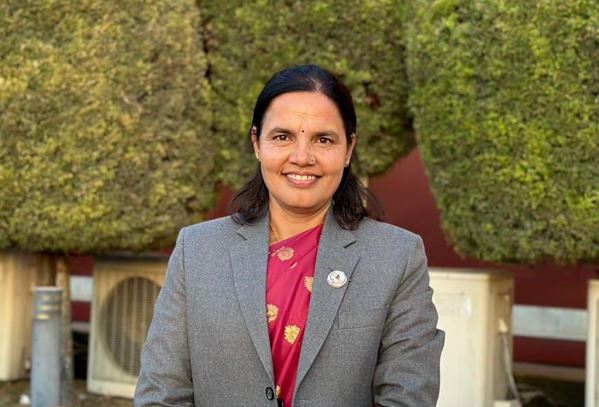
Ashok Ghimire
Kathmandu, Nov 1: Lawmaker Narayani Sharma has expressed that the parliament is not playing its role in an effective manner when it comes to its major role- formulating laws through rigorous debate.
“When entering parliament, I had thought that there would be hot debate and deliberations on laws and policy matters. I did not find it as I had thought. Rather, there is trend of one MP levelling charges and barbs at the other,” she said, talking about her experience as a parliamentarian in the last one year.
According to her, the parliament is the highest representative people’s body and it should live up to its responsibility in formulating legislations in an effective manner. She shared that the parliament is yet to make several important laws.
The lawmaker from the CPN (Maoist Centre) said the parliament has been diverging on secondary issues rather than focusing on its legislative functions. The parliamentarians themselves have publicly said that the parliament is found wanting in holding policy-related debates and discussions on lawmaking.
In the view of lawmaker Sharma, the legislators also have their role in the development of infrastructures and other public services in their respective constituencies, and this should not be construed as infringement on the role of the local government.
“We should not ignore the expectation of people to have basic needs in the context when villages lack infrastructures like health, education, roads and agriculture.”
Stressing the need for taking along people’s aspirations, she said, “If lawmaking should be prioritised, we as lawmakers should be equally responsible for addressing the demands raised by the people.”
Born in 2033 BS, Sharma joined the Maoist since 2047 BS. She got the party membership in 2050 BS. Having served as the party member of the cell, area, district, regional bureau, central member, she is now party politburo of the Maoist Centre.
Although the decade-long people’s war ended through a comprehensive peace accord, the matter relating to transitional justice could not be concluded yet, she rued. “Transitional justice is an integral part of the peace process, it must be concluded. Although it has been a decade and a half since the peace agreement, it has not been submitted to the House.”
Saying that she felt that they were still reluctant to conclude the main remaining work of peace process, Sharma rued the tendency of not focusing on the work under the pretext of various excuses and issues.
She alleged that some political parties were not taking the peace process seriously as if taking the peace process to its logical conclusion will only politically benefit the Maoists. RSS










